Foundation Projects
FCA: Support for Typhoon Rai victims using LACS
CVISNET Foundation, Inc.
Typhoon Rai devastated parts of the central Philippines, especially in Cebu, disrupting access to such basic needs as shelter, medicine, food, safe drinking water, and electric power and telecommunications. This grant helped provide a reliable and accessible communication system on Gilutongan, an island in the Cebu municipality of Cordova that was hard hit by Typhoon Rai (which the Philippines designated Typhoon Odette).
In the absence of electric power, an Internet network or telecommunication signals, one tested and proven infrastructure that can support this ICT need is an upgraded version of a movable and deployable ICT resource unit platform, better known as a Locally Accessible Cloud System (LACS). A LACS is a portable server system that uses solar power to fill gaps in the immediate provision of ICT communications connecting residents’ smartphones. As a LACS can provide cloud service anytime, anywhere and in any network environment — and can serve as well as a solar-powered charging station for smartphones and tablets — it can ensure reliable connectivity following even the most devastating disaster.
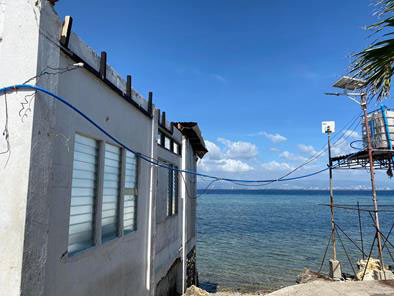
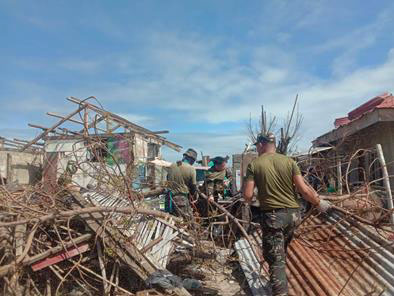
Project progress
The project started with a site survey of the Gilutongan Island on May 25, 2022. This post-disaster activity aimed to re-assess the severity of the effect of typhoon Odette to the community of Gilutongan Island. This is to gauge the physical damage to the communication facilities in the area for communication rehabilitation purposes. The survey also aimed to identify the right spot where the planned ICT facilities could be installed.
The social preparation activity was done on June 2, 2022. It included representatives from the target beneficiaries including fisherfolks, farmers, teachers, students, and barangay (the smallest unit of local government) officials. The event was facilitated and witnessed by two of the stakeholders from Seed4com and the Municipality of Cordova. Everyone was given the printed project brief as the team discussed project details and solicited information from the participants. A survey form was also distributed to assess the actual needs of the community.
The installation of Point-to-Point infrastructure happened June 10, 2022. The project is using P2P infrastructure to distribute internet connection from the mainland of Cordova to the Gilutongan Island which is approximately 6.5km away from each other. Point-to-point connections, sometimes called a point-to-point link, P2P links, private line, or leased line, securely connect two locations using a Layer 2 data connection, building a closed network. Data on these connections doesn’t travel on the public Internet, where it could be vulnerable to hackers or cyberattacks. Point-to-point connections are extremely secure, so much so that only limited data encryption may be necessary when using them. The activity was facilitated by one of the project’s stakeholders, the 7Core. There were two P2P infrastructures that were successfully installed, one was located at the Municipal Hall of the mainland of Cordova and the other one was located at the Barangay Hall of the Gilutongan Island. Both of the P2P locations were installed in the highest point of the community.


Another two sets of P2P infrastructures were installed at the Gilutongan Island last July 20, 2022. Both were located in the vicinity of the school, one was in the school’s 3-storey building facing the mainland Cordova and the other was in the principal’s office facing the Barangay Hall. Solar panels were also installed to backup power in the event the community’s generator will be turned off. The P2P installed at mainland Cordova will act as the sender of the broadband internet to the P2P receiver found in the school’s 3-storey building at Gilutongan Island. The P2P sends the broadband connection through cable from the 3-storey building going to the principal’s office. The P2P at the principal’s office will now become the sender of the broadband internet to the P2P found in the Barangay Hall. The broadband internet will then be distributed to the community through wifi access. The activity was facilitated and witnessed by project’s stakeholders from the Municipality of Cordova, from SEED4Com, 7Core, the school and barangay officials of Gilutongan Island.


The Local Accessible Cloud System (LACS), which is one of the main components of the project, was installed and tested last September 20, 2022. LACS is a portable server system that comprises of compact server, access point, battery and peripheral devices. It was carefully checked and evaluated by the project’s technical team before installation deployment. The LACS unit was successfully installed and tested for use inside the vicinity of Gilutongan Integrated School. It was housed near the principal’s office where the switch and the computer system unit were as well-kept. The activity was facilitated by 7Core and the project’s technical team.

A stakeholder’s meeting was conducted last September 28, 2022 to inform the beneficiaries of the project of the successful installation of the P2P infrastructure with ready broadband internet service, and the installation of the Locally Accessible Cloud System (LACS). Participants were made to try to connect to the internet through the wifi and as well connect to the LACS. Further discussed were ways and means in order to sustain the project for long-term use. Participants who shared their insights were from the Parents-Teachers Association (PTA), school heads, barangay officials, student’s council, fisherman and sari2x store owners. The activity was facilitated by SEED4COM and the President of CVISNET.
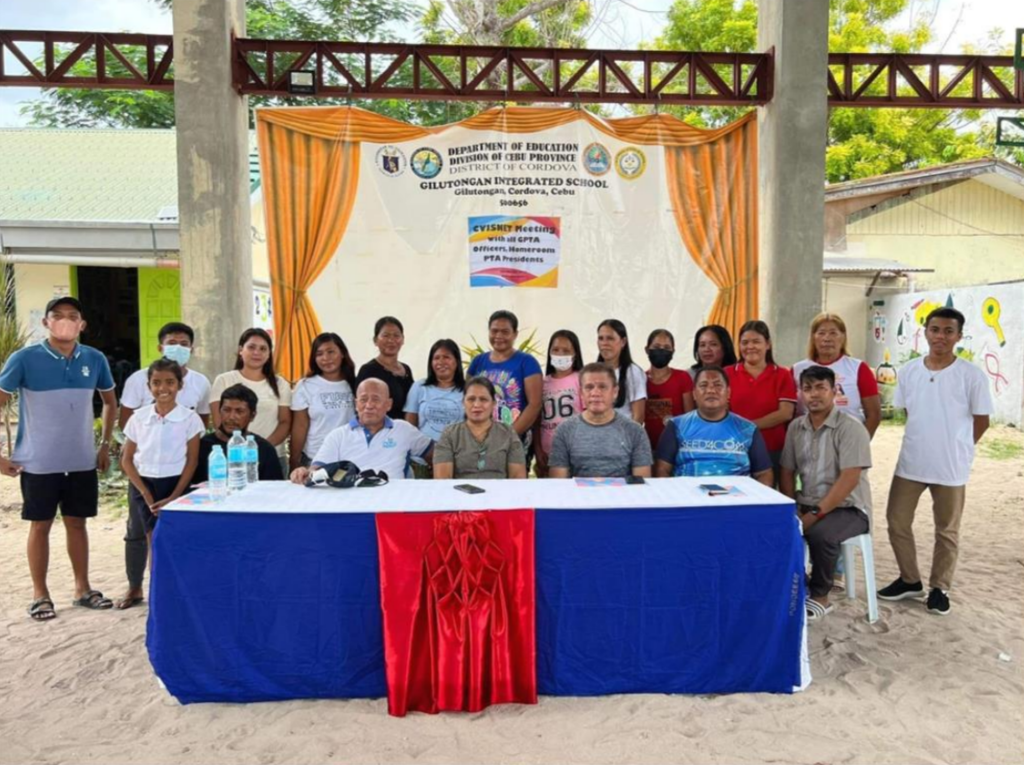
The ISLET Connect demonstration & stakeholders engagement was simultaneously conducted at the Cordova Municipal Hall and at the same time at the Gilutongan Integrated School last October 19, 2022. The programs of the two locations were being merged through Zoom using the broadband internet connection of the island. The event was also participated by the local and international stakeholders both face-to-face and online. Among those who attended the Municipal Hall of Cordova where the main program was presented were representatives from the Cordova Mayor’s Office, DICT, AFOS, 7Core, Caohagan and Pangan-an Islands, SEED4Com, media and the Director of the Department of Science and Technology himself, Dir. Jesus Zamora Jr. The ISLET Connect event highlighted the results from the project “Communication Support for Typhoon Rai Victims using LACS” wherein it was presented that the school was already using the broadband internet connection in their classes and the residents were already connected to the Local Accessible Cloud System. The event was graced by three international speakers from APNIC, ATR-Japan and Wisflux India and by five local speakers from DOST-7, Cordova Municipal Mayor’s office, SEED4Com, CVISNET and VSU.
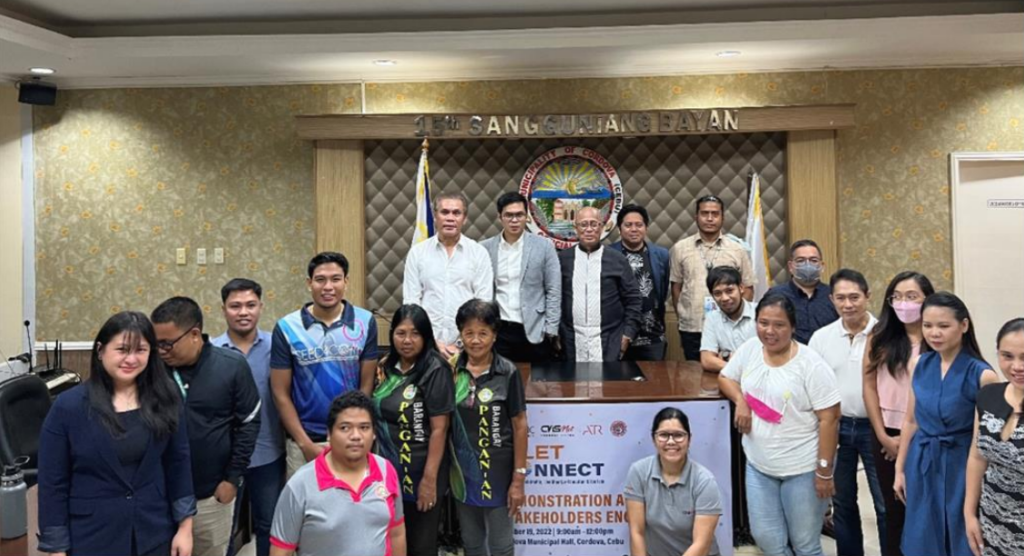
The LACS training was successfully conducted and participated by the school teachers, students, barangay officials and some of the residents from Gilutongan Island last November 16, 2022. They were introduced to the features of LACS and how will they be able to use it as communication support during calamities. They were also taught how to use LACS in their day-to-day activities. Basic operation, maintenance, and troubleshooting of the LACS were also discussed.
The team as well shared long-term options on how to sustain the project thus maximizing its potential benefits to the community. One of the discussed options to control the usage of the bandwidth is using the ticketing or vouchering system. Some residents will be allowed to use the broadband Internet through a wifi connection by inputting the codes which will give the user limited time for use. In the future, a certain amount depending on the duration will be paid for the resident to get a ticket/voucher to allow the usage of wifi. Proceeds will then be deposited to the bank to be used for the monthly internet subscription and as well for other operating and maintenance purposes.
Finally, a speed test monitoring was conducted remotely via TeamViewer to check the stability of the broadband internet connection installed at the Gilutongan Island from November up to the present. The speed test results differ in readings with the weather interruptions like heavy rain and strong wind as a major factor that slows down the download and upload speed of the internet broadband connection. The data shows that from November with 14 days of monitoring, December with 8 days of monitoring, and January with 10 days of monitoring, the average broadband speed for download was 34.84 Mbps and for upload was 44.18 Mbps.
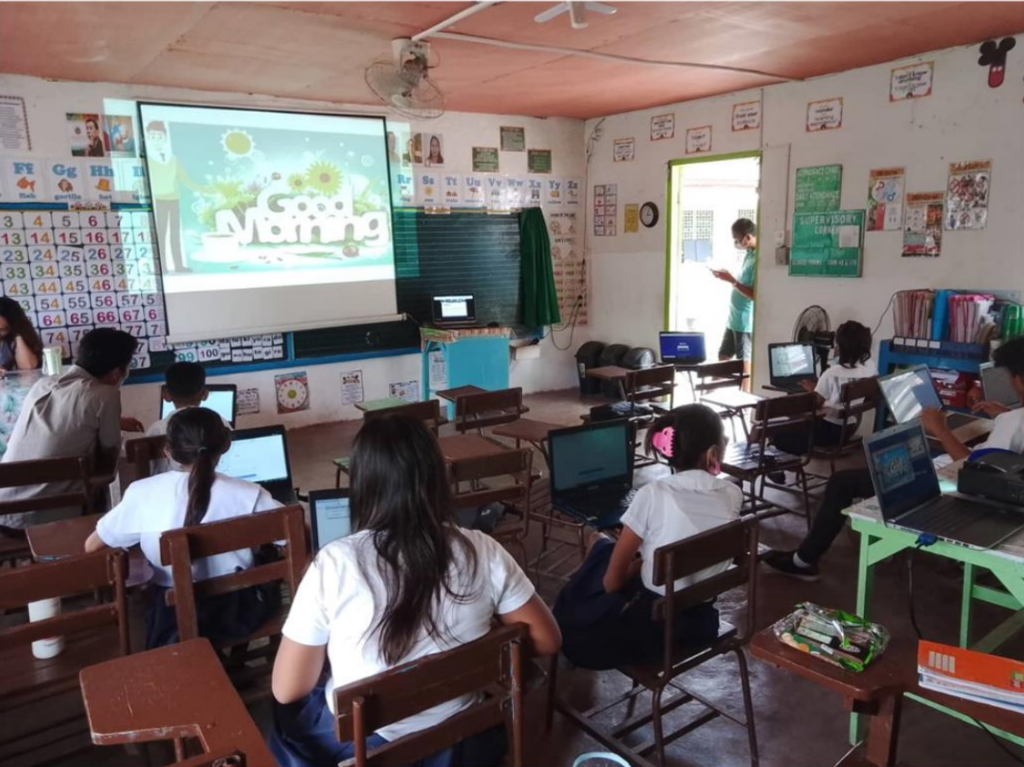
Related:


